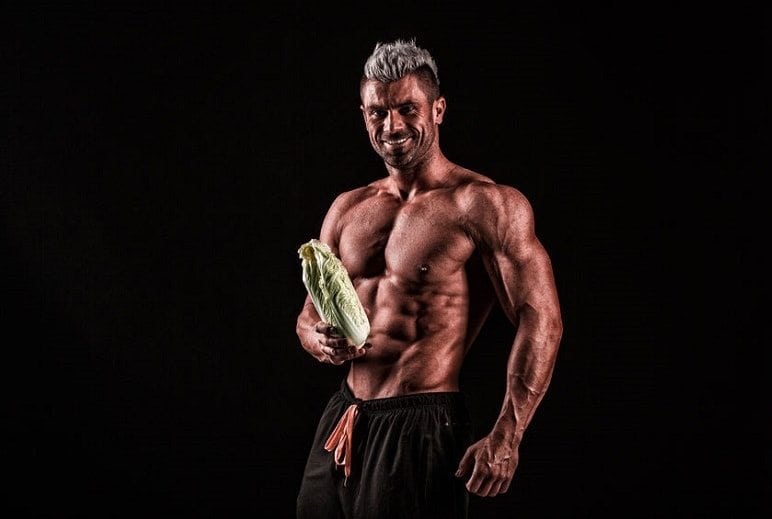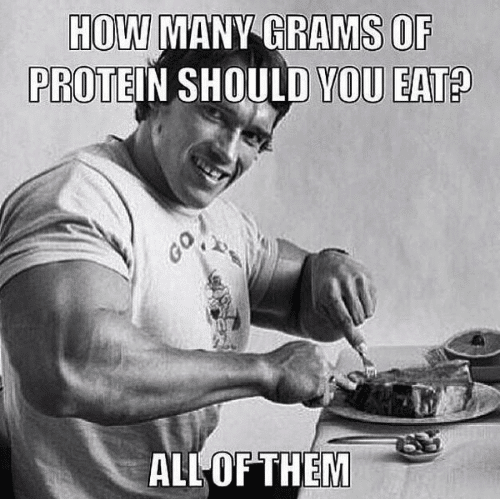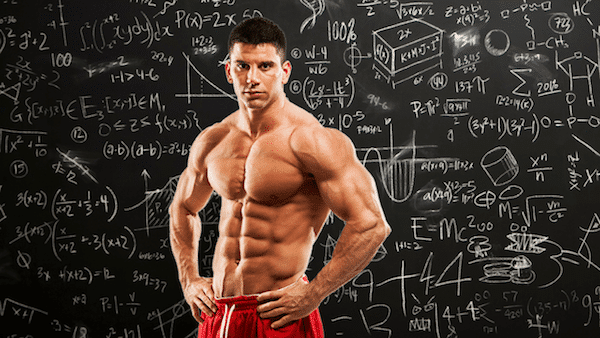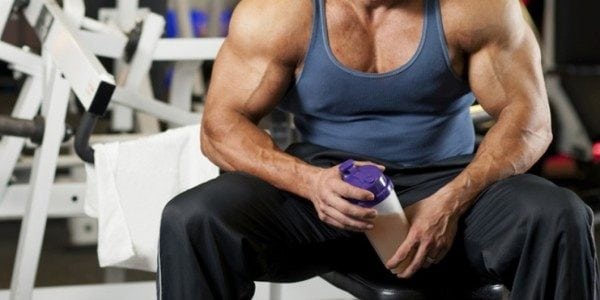No products in the cart.
Essential Nutrients for Muscle Growth

Nutrients are chemical compounds that are consumed by humans for energy, there are two types of nutrients; macronutrients and micronutrients.
Macronutrients are protein, fat, carbohydrates, and technically alcohol (but most people ignore this one).
Micronutrients include vitamins and minerals.
So, when we talk about essential nutrients for muscle growth, we are talking about both macronutrients and micronutrients.
In this article we will first address the importance of macronutrients and give you an idea of what ratios you should be consuming them in for optimal muscle growth. We will then look at the benefits of certain vitamins and minerals.[toc]
Macronutrients & Muscle Growth
If you’ve spent any time reading about building muscle, or if you’ve just spent 20 minutes overhearing some bros talking nutrition in the gym, then you’re probably aware that protein is important for muscle growth. But it is not just protein that is needed, carbohydrates and fats are also important.
The difference is that you can still build muscle with a very low carb or low fat diet, but you can’t do much without protein.
Fat
Dietary fat intake can help improve athletic performance, by improving recovery after exercise, improving testosterone levels in men, helping with sleep quality, and it can also help protect joint health.
Increasing the amount of fat you eat can have a huge impact on your hormones, particularly testosterone [1].
This is important because it is testosterone that increases muscle growth, recovery, and also helps with sleep.
Carbohydrates
The main use for carbohydrates is for energy, glucose is the body’s preferred energy source. Which is why a low-carb diet is not recommended for anyone looking to build muscle.
Not only do carbs help fuel your workout but taking them immediately after a workout can help to stimulate protein synthesis by increasing insulin production.
Carbs are also protein sparing, this means that by consuming adequate protein you can prevent the breakdown of muscle protein.
By keeping carbs high you can get the maximum muscle growth from your workout.
Protein
Consuming adequate protein is essential for muscle growth.

Studies have shown that athletes require twice as much protein as sedentary individuals [2]. This is because protein can help repair and rebuild muscle fibres to increase muscle growth.
Protein can also preserve muscle mass while you’re on a diet.
Usually calorie restriction will lead to muscle loss but consuming a high protein diet while keeping calories low can keep your muscle mass safe [3].
A combination of increased protein and resistance exercise is the most effective way to build muscle mass [4]. It also helps to improve recovery after exercise.
Understanding Macro Ratios

Now that you understand the importance of each macronutrient for muscle growth, it is important to discuss how much of each you should consume.
Changing macro ratios can help you with many different goals, for example lower carbs and increasing protein can help improve body composition [5].
To build muscle you need to be in a calorie surplus, in other words you need to be consuming more calories than you are burning.
This will build up a surplus of calories that your body can use to build muscle. You can do this by increasing carbohydrate intake, protein, and fat, but what ratios should you be following?
Probably the best study out there is the one authored by Helms, Aragon, and Fitschen in 2013. These three looked at the available scientific literature and created a recommendation based on them.
The study found that consuming 2.3-3.1g of protein per kg of lean body mass (your body weight minus the weight of body fat) [6]. For a 100kg person who is 20% body fat, that would mean 80 x 2.3 = 184g of protein per day.
They recommended that 15-30% of the calories that you consume each day should come from dietary fat, with the rest coming from carbohydrates.
As you have no doubt noticed, the ratios are quite vague. 3.1g of protein per kg of lean body mass is quite a lot more than 2.3g of protein (248g rather than 184g in the above example). Also, 15% and 30% are huge differences. If your diet is around 2,000 calories per day then we’re talking a difference of 300 calories.
Changing these numbers around will have an impact on how much carbohydrates you should consume.
So, it does matter how much protein, carbs, and fat you consume, but you can still change them around quite a bit to fit your personal preferences.
The key is to be consistent. It is important to note that this study was aimed at natural bodybuilders, so if you are looking to build decent muscle size without steroids this macro ratio will be perfect for you.
Micronutrients & Muscle Growth

Micronutrients are split into vitamins and minerals.
The vitamins are: Vitamin A, Vitamins B1, B2, B3, B5, B6, B7, B9, B12, Vitamin C, Vitamin D, Vitamin E, and Vitamin K.
The main minerals that you should be aware of are: Potassium, Sodium, Copper, Calcium, Magnesium, Iron, Zinc, and Manganese (there are many others).
Being deficient in any of these vitamins or minerals can hinder muscle growth, though some have more of an impact than others.
Vitamin A
The main benefit of vitamin A is that it can help support protein synthesis by breaking down protein.
It can also help keep testosterone levels high, which is vital for muscle growth.
B Vitamins
You require B vitamins to metabolise protein, they can also reduce homocysteine levels and increase blood flow.
For this reason, a lot of pre workout formulas contain B vitamins.
Vitamin C
One of the biggest benefits of vitamin C is that it protects muscle cells from oxidative damage.
It also helps to strengthen joints by helping form collagen. Stronger and healthier joints mean that you can lift more weight and build bigger muscles.
While the debate on whether vitamin C can help prevent or treat colds still rumbles on, it could potentially mean that vitamin C can help prevent you getting ill while training at a high intensity.
Vitamin D
Studies appear to indicate that increasing vitamin D levels can lead to an increase in testosterone production [7].
This suggests that vitamin D is a crucial micronutrient for building muscle, due to the huge impact of testosterone on hypertrophy.
Vitamin E
Just like vitamin C, vitamin E can help protect muscle cells from exercise induced oxidative damage. This makes it a great micronutrient for athletes who train regularly.
Vitamin K
There are two main benefits to taking vitamin K if you are looking to build muscle.
Firstly, vitamin K can help the body to absorb calcium (which can help strengthen bones and improve muscular contractions).
Secondly it can help regulate blood flow, which is important for anyone looking to build muscle as it allows blood to travel to the muscles that need it.
Now that we have taken a look at the vitamins and described why each is important for muscle growth we can take a look at some of the more effective minerals and talk about how they help too.
Copper
Can help strengthen tendons, which is useful for anyone planning on lifting heavy weights to build muscle without injuring themselves.
Zinc
Helps to boost testosterone, may help improve sleep quality, and is therefore seen as the perfect supplement for recovery and repair.
Magnesium
Helps with muscle contractions and is often taken alongside zinc as a sleep and recovery aid.
Iron
Useful for transporting oxygen to the muscles, and as a source of energy. Perfect for high intensity workouts.
Calcium
Strengthens bones, which can help with increasing strength, and also helps with muscle contractions.
Most of the vitamins and minerals that you require are available in the foods that you should be eating anyway if you are attempting to hit your macro targets. But some vitamins and minerals may need to be supplemented – particularly if you are a vegetarian or vegan.
Another thing that should be considered when you are training at a high intensity is that athletes tend to require higher intakes than the average recommended daily allowance.
This is for the same reason as the need for increased protein, athletes use up more vitamins and minerals when they are training and recovering from exercise.
Also, when you are dieting for a competition (or just so that you can see your abs) you will be restricting your diet – which can lead to deficiencies. So, stock up on a good multivitamin supplement and find some mineral supplements too.
Final Thoughts

How important these macronutrients and micronutrients are is determined by how serious you are about building muscle mass.
If you are joining the gym for the first time you shouldn’t need to worry too much, but if you are planning on competing in your first bodybuilding competition, or you are going to play a sport at a good level, then your nutrition is going to be vital to your success.
Tracking your calories is a must, particularly at the start.
Most people’s nutrition knowledge is pretty poor. Do you know how much protein you are hitting each day? Are you aware of which foods are a good source of iron? Probably not.
Tracking your calories and macros using an app such as myfitnesspal.com is a great way to address this issue.
The more you use them, the more your knowledge will increase.
Hitting your iron, calcium, and all your vitamin levels is a must. Taking a zinc and magnesium supplement before bed is a great idea.
Finding the right amount of protein for your needs and then ensuring that you hit that target every day is the best way to build muscle (provided that you are also exercising).
When you are trying to maintain muscle while dieting, you should consider keeping protein levels nice and high, while slowly cutting down on carbohydrates and fats.
At this point, supplementation with a multivitamin and some mineral supplements is a very important move. This can prevent fatigue, illness, and muscle loss, it can also help to prevent a drop in your gym performance.
Always try to get your micronutrients from food sources if possible, but don’t buy into the belief that supplements have no use. This goes double for whey protein. Some people claim that getting protein from natural sources is more effective, but whey protein is natural, and is also the fastest digesting protein out there.
Fat supplementation such as Omega 3s is also a good idea if you don’t typically get enough omega 3s through your diet. You don’t really need any carbohydrate supplements, unless you are trying to build a LOT of muscle and are going on a huge bulk.
